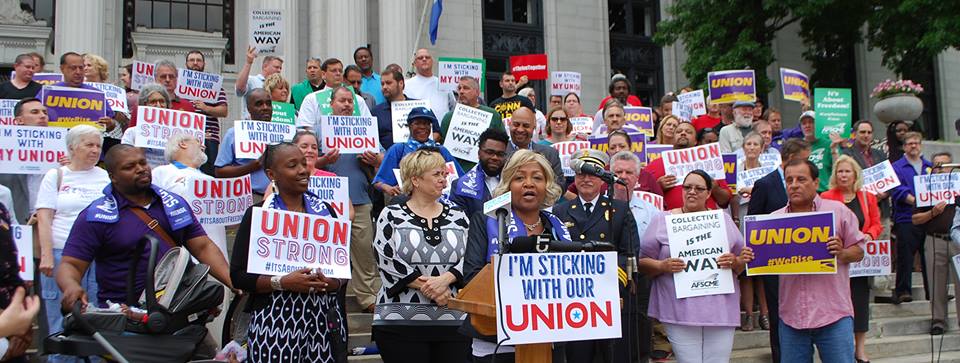State employee unions gained 2,952 members between April and December of 2018, according to figures from the State Comptroller’s Office, but half of those gains came from just two bargaining units: Corrections Officers and the Judicial Professional Employees Union.
Those two unions accounted for a shift of 1,460 state employees from agency fee payers to full union members since the Janus v. AFSCME decision in June of 2018, but that change in membership may have had more to do with union book-keeping and state hiring than with convincing non-members to change their minds.
Connecticut added 1,284 new employees to state bargaining units between April and December 2018, bringing the total to 2,744. Unions representatives are allowed to make their pitch to new state hires to convince them to sign up with the union.
But the largest shift in union membership likely came from an administrative fix to the unions’ records.
In April of 2018, the JPEU – an affiliate of the Connecticut chapter of the American Federation of Teachers – had nearly nine times as many agency fee payers as dues-paying members.
The state registered 973 agency fee payers with the union and only 137 actual dues-paying members.
In other words, 87 percent of the entire bargaining unit were considered agency fee payers – the reverse of every other bargaining unit in the state, and a figure unheard of in unions across the country.
The difference between the two classifications did not matter much to the union financially, at the time. Agency fee payers were not technically considered union members but paid fees equal to dues.
Following the Janus decision, however, the state stopped collecting agency fees.
As of December, membership numbers for the JPEU were almost completely reversed: 1,057 dues-paying members and 288 non-members – employees who previously would have been considered agency fee payers.
The total number of employees in the bargaining unit had also increased by 235, meaning 79 percent of the bargaining unit are now union members.
A similar but smaller shift occurred with correction officers. In April, the bargaining unit consisted of 871 agency fee payers or 22 percent of correction officers. By December, that figure was reduced to just 2 percent.
Combined, the shift from agency fee payers to dues-paying members in those two bargaining units accounted for 1,460 “new” members added to the unions’ membership roster, nearly half of all the membership gains for state employee unions.
Jody Barr, executive director of AFSCME Council 4 which represents the correction officers bargaining unit, said the high number of agency fee payers was due to an administrative error which classified them as agency fee payers when they switched facilities or transferred jobs.
Barr said he met with those employees and explained the situation to them, convincing them to sign up as full dues-paying members.
It is unknown if a similar situation caused the massive shift in union membership for JPEU.
Neither Jan Hochadel, president of the CT AFT, nor Deborah Kern, president of the Judicial Professional Employees Union returned a request for comment about the large shift in JPEU agency fee payers.
The JPEU, which represents a number of different judicial employee positions including probation officers, experienced a sudden change in leadership in August when former head of the union Carmen Roda resigned in the wake of questionable spending and allegations of misappropriation of union funds.
A forensic audit of the union was ordered in September 2018, and Deborah Kern assumed the role of interim president.

